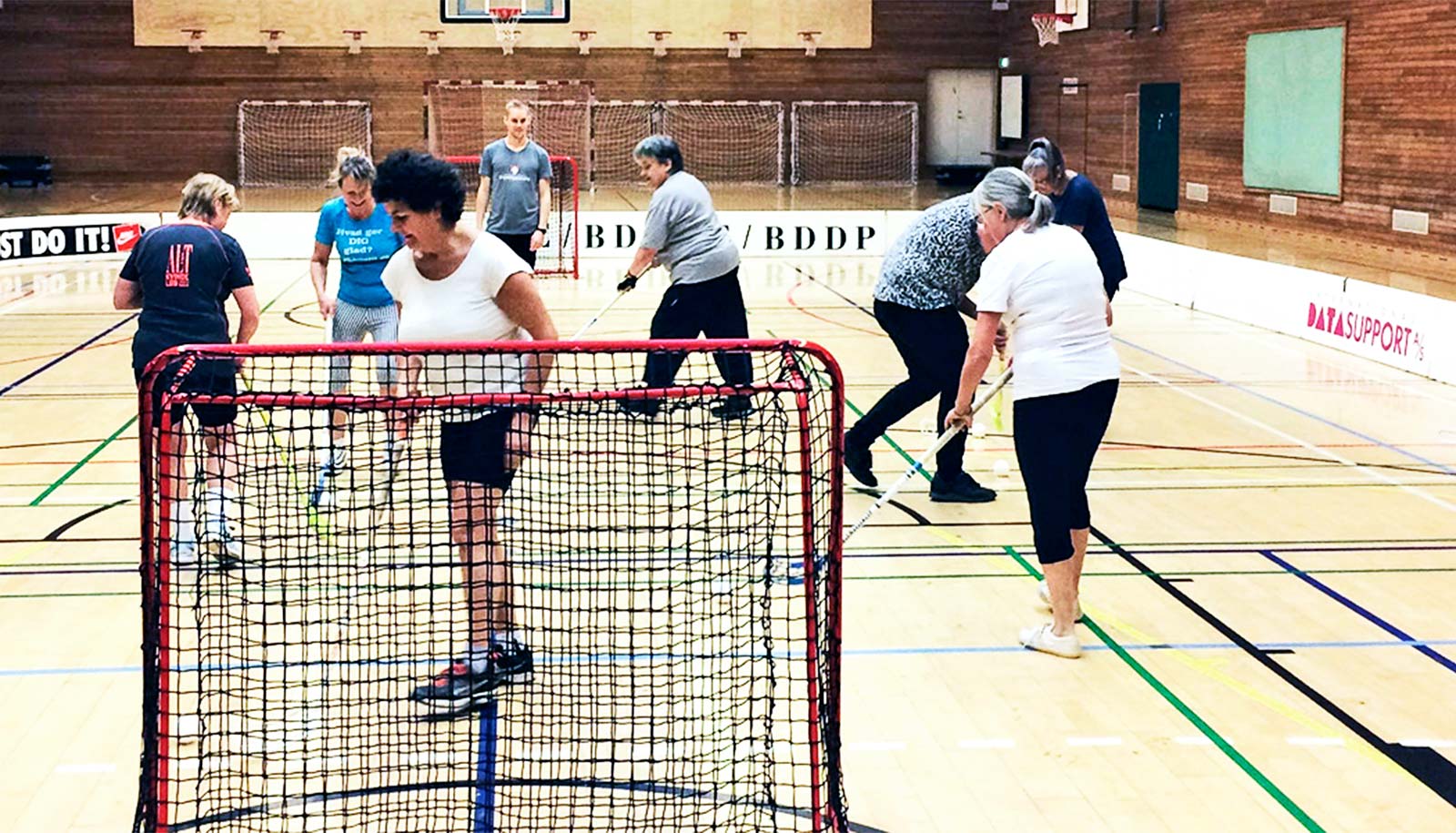Team sports effectively counteract diminished vascular function in postmenopausal women with high blood pressure, even several years after the onset of menopause, according to a new study.
Estrogen loss associated with transition into menopause increases a woman’s risk of developing cardiovascular disease and reduces ability to benefit from training. However, the new findings demonstrate that postmenopausal women do benefit from exercise, in this case, playing small-sided floorball twice a week.
For the study, a group of postmenopausal women with high blood pressure and a control group with normal blood pressure participated in biweekly floorball training for 10 weeks.
For the women with high blood pressure, floorball training reduced vascular stiffness and led to a decrease in blood pressure by 15 (systolic) and 9 (diastolic) mmHg in the hypertensive women. This is significant and corresponds to a 40% lower risk of heart attack death and a 30% reduction for coronary artery disease, which is characterized by reduced oxygen supply to the heart.
The group of women with normal blood pressure had slightly elevated blood pressure at the onset of the study, which is common among inactive postmenopausal women. They too experienced a noteworthy 10 mmHg decrease in systolic blood pressure with the floorball training.
“The study demonstrates that team sport among postmenopausal women is such an effective form of exercise that, with only two workouts a week, there are significant improvements in blood pressure, vascular function, and body composition,” says Thomas P. Gunnarsson of the nutrition, exercise, and sports department at the University of Copenhagen.
The study also shows that postmenopausal women experienced a noteworthy 10% reduction of visceral fat mass (the “dangerous” fat found between internal organs). Furthermore, total fat mass decreased by half-a-kilogram (slightly more than 1 pound).
It is especially noteworthy that these results emerge from a group of women with no prior experience with floorball, says Jens Bangsbo, associate professor and head of the Copenhagen Center for Team Sports and Health.
“The study supports the numerous health benefits from team sports participation and provides us with a deeper understanding of training adaptations associated with team sport, which creates high motivation among postmenopausal women,” Bangsbo says.
“Furthermore, the lack of experience with floorball was not a limitation in the women’s ability to achieve excellent health results in a relatively short time.”
The results are promising especially as it has been believed that vascular smooth muscle in postmenopausal women cannot change with exercise. The study contradicts that notion.
The new findings contribute to an increasing body of knowledge about the mechanisms involved in high blood pressure among postmenopausal women, as well as the types of exercise that can effectively counteract the negative consequences of loss of estrogen with time in the postmenopausal state.
The study appears in the American Journal of Physiology – Regulatory, Integrative and Comparative Physiology.
Source: University of Copenhagen


